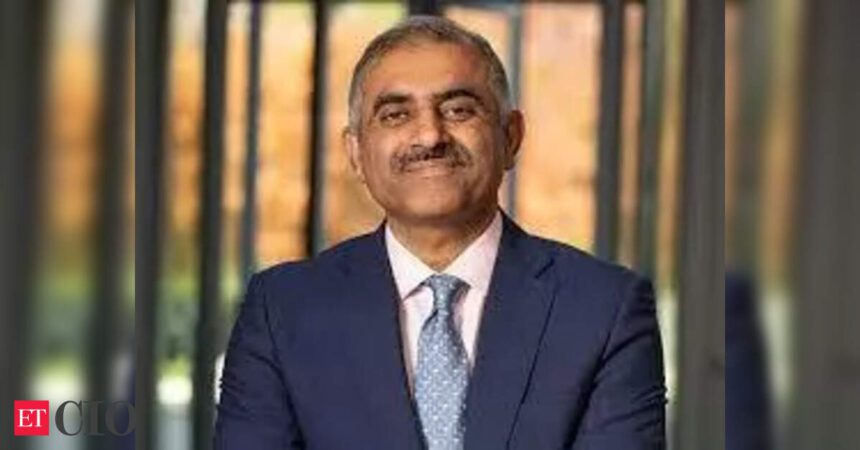Artificial Intelligence (AI) represents more than just a technological advancement; it signifies a profound, civilization-scale disruption. Nitin Seth, Co-Founder and CEO of Incedo and author of The Human Edge in the AI Age, refers to it as a “multi-generational seismic shift” that will fundamentally alter the landscape of work, education, and leadership. In a recent discussion with ETCIO, Seth illuminated how Chief Information Officers (CIOs) can navigate this transformation, emphasizing that India is at a pivotal point, and detailing what it takes to thrive in an environment where machines are increasingly capable of code generation, workflow automation, and enhancing human capabilities.
Seth asserts that the AI era marks a transition away from traditional employment structures towards a new entrepreneurial landscape. He suggests that while AI may eliminate significant numbers of knowledge-based jobs, it also provides fertile ground for unprecedented entrepreneurial opportunities, particularly in India’s Tier 2, 3, and 4 cities. “We need to unleash a tsunami of entrepreneurship,” he notes, calling for rapid evolution in policy frameworks, cloud and computing infrastructures, and access to cost-effective GPU resources.
According to Seth, AI offers India a unique chance to leap forward technologically. “AI simplifies product development and shifts focus toward solving business problems rather than merely providing services,” he explains. For decades, India’s IT sector dominated through execution-oriented models, but with AI driving productivity increases of 25-40%, the conventional services approach is poised for decline. “India has the opportunity to transition from a services-based economy to one centered on products—moving from execution to innovation,” he emphasizes. To capitalize on this opportunity, the nation must align educational systems, industry standards, and policies toward creating value rather than merely delivering volume.
In rethinking the competencies needed for the AI age, Seth challenges conventional beliefs: success will not hinge on coding expertise. “You don’t need Java or Python to thrive in the AI age,” he argues. “AI operates through English prompts—it revolves around context, creativity, and orchestration.” He identifies four essential skills for future digital leaders:
- Domain Understanding: Comprehending the significance of various challenges.
- Problem Solving: Connecting diverse insights.
- Orchestration: Integrating teams, tools, and viewpoints.
- Creativity: The distinctively human capacity that machines cannot replicate.
“The key issue is not talent but rather mindset,” Seth states. He critiques existing education and corporate learning models as overly focused on hard skills, advocating for a framework that fosters curiosity, risk-taking, and imagination.
For CIOs, Seth maintains that the responsibility extends beyond mere technological implementation. “The greatest error enterprises make is treating AI as a technology initiative,” he cautions, asserting that the failure to integrate AI into broader strategic initiatives can jeopardize digital programs. Instead, CIOs should transition from executors to orchestrators—from order-takers to agents of change. “Technology has evolved from being an enabler to a core component of strategy,” he remarks, stressing that this is the moment for CIOs to partner with CEOs as strategic thought leaders.
Ultimately, Seth argues that success in the AI era will not be defined by tools or platforms but by leadership that recognizes technology as a means for transformation rather than replacement.
In conclusion, Seth reiterates a human-centric perspective: “As AI becomes more human-like, it is not a threat but a test,” he explains. “We must rediscover our unique human traits—creativity, empathy, and the willingness to embrace risks.” For CIOs, this evolving landscape is less about competing with AI and more about a leadership assessment—prompting them to reimagine their organizations, redefine human potential, and lead with a new understanding of intelligence.
Published on October 15, 2025, at 09:12 AM IST.










